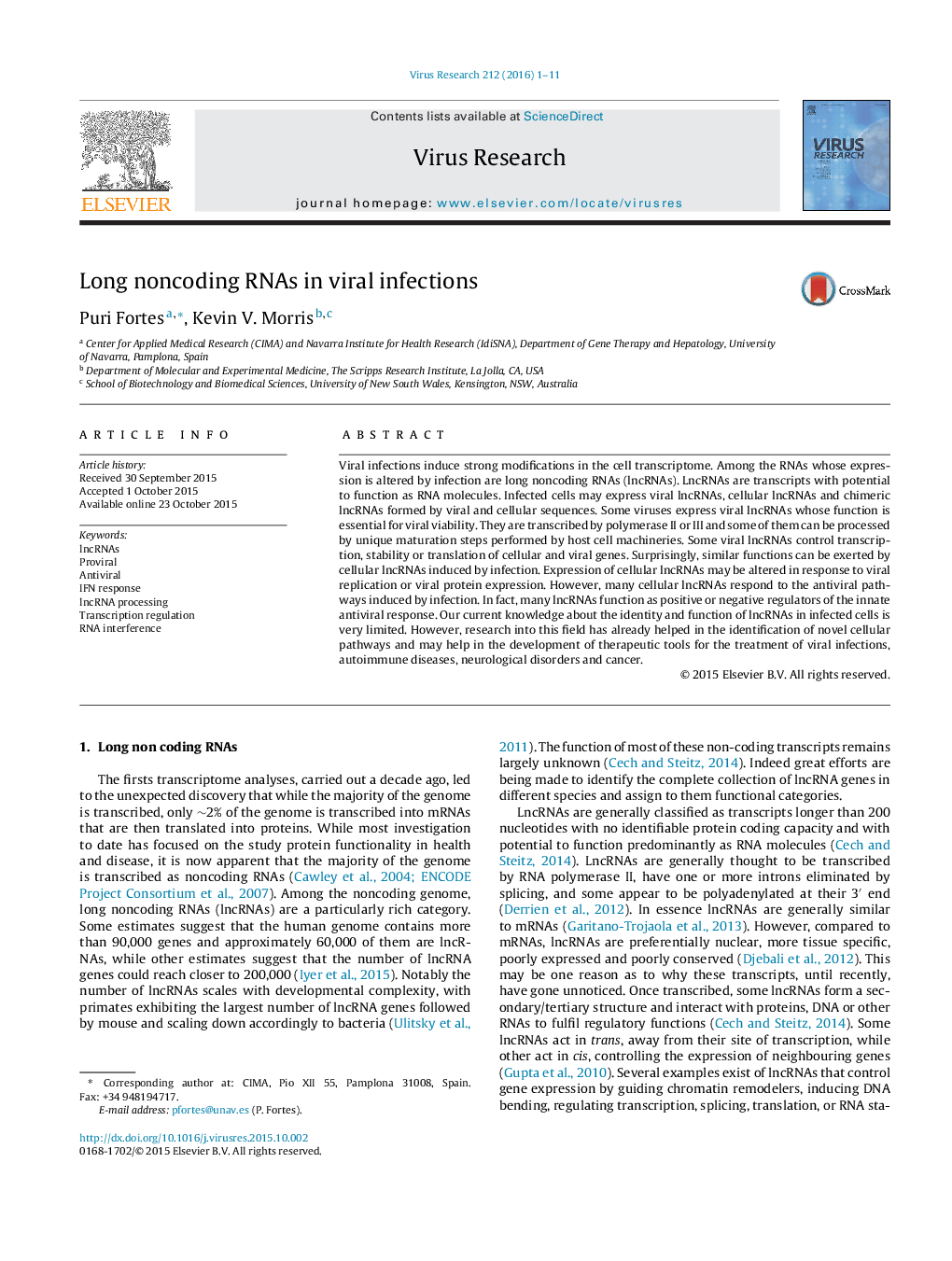| Article ID | Journal | Published Year | Pages | File Type |
|---|---|---|---|---|
| 3428088 | Virus Research | 2016 | 11 Pages |
•Infected cells change their transcriptome to express proviral and antiviral lncRNAs.•Many viruses express viral noncoding transcripts essential for viral viability.•Many lncRNAs expressed in the infected cell function as positive or negative regulators of the innate antiviral response.
Viral infections induce strong modifications in the cell transcriptome. Among the RNAs whose expression is altered by infection are long noncoding RNAs (lncRNAs). LncRNAs are transcripts with potential to function as RNA molecules. Infected cells may express viral lncRNAs, cellular lncRNAs and chimeric lncRNAs formed by viral and cellular sequences. Some viruses express viral lncRNAs whose function is essential for viral viability. They are transcribed by polymerase II or III and some of them can be processed by unique maturation steps performed by host cell machineries. Some viral lncRNAs control transcription, stability or translation of cellular and viral genes. Surprisingly, similar functions can be exerted by cellular lncRNAs induced by infection. Expression of cellular lncRNAs may be altered in response to viral replication or viral protein expression. However, many cellular lncRNAs respond to the antiviral pathways induced by infection. In fact, many lncRNAs function as positive or negative regulators of the innate antiviral response. Our current knowledge about the identity and function of lncRNAs in infected cells is very limited. However, research into this field has already helped in the identification of novel cellular pathways and may help in the development of therapeutic tools for the treatment of viral infections, autoimmune diseases, neurological disorders and cancer.
